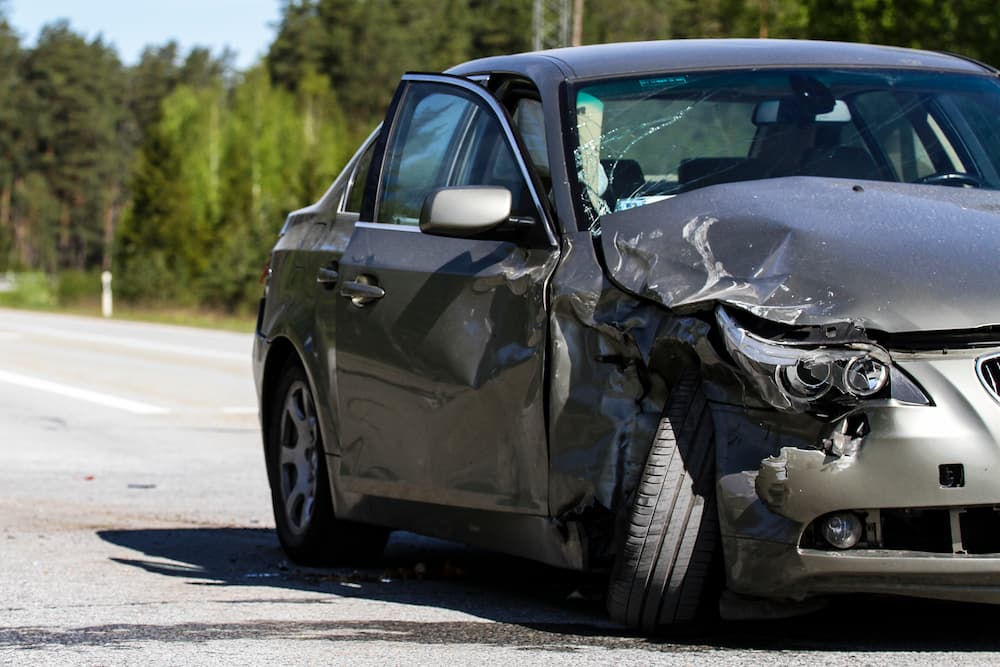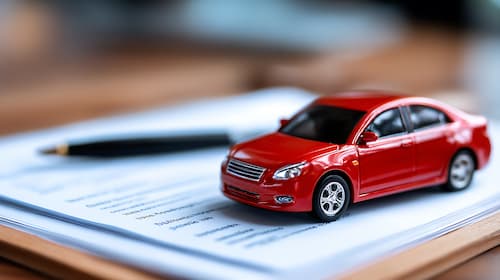Why did my car insurance go up?
Car insurance rates can increase for many reasons. Even if you are a great driver with no accidents or tickets on your record, your rate still might go up when your policy renews.
In some cases, things related to you as a driver can cause your rate to increase. There are also many factors outside your control impacting the entire insurance industry that can cause higher car insurance rates for a large group of people.
If your latest renewal notice brought you a bad case of sticker shock, it can help to understand some of the reasons why your rate suddenly jumped. We’ll break down some of the most common reasons for a car insurance rate increase below.
Driver profile
Your individual driver profile plays a major role in the price you pay for auto insurance. For example, younger drivers tend to pay more for insurance than older drivers. In addition, men pay more than women on average.
That is because young people and men tend to get into more accidents, and those accidents are often more serious.
Where you live also plays a role in your insurance costs. If you live in a community where rates of car theft and vandalism are higher, you will pay more.
Your driving record can greatly affect your costs. If your record is clear of accidents and tickets, your costs will likely be much lower.
On the other hand, if you get into a series of accidents or are convicted of driving under the influence, expect your rates to skyrocket.
A change in any aspect of your driver profile can impact your rates, sometimes resulting in an increase.
Vehicle repair costs are on the rise
Car repair costs are much higher today than they were before the arrival of the COVID-19 pandemic. Insurance companies need to account for those higher costs when setting premiums.
While the recent spike in inflation has contributed to higher repair costs, the increasingly sophisticated technology in today’s cars also plays a large role, says Lois She-Tom, director of national auto product at Country Financial.
“Back in the day, a fender bender resulted in a small repair and a small repair bill,” she says. “Today, you’re replacing more than a bumper.”
For example, many cars today come with sensors and cameras that boost repair costs.
“The more bells and whistles, the more it costs to fix,” She-Tom says.
Increase in claims
Since the end of the pandemic, accidents increased in frequency and severity, leading to an increase in insurance claims. The National Safety Council reported a 6.4% increase from 2019 to 2022.
Accidents rose partly due to bad driving behaviors such as texting while driving, or driving under the influence of alcohol and drugs. The Insurance Information Institute says that increased speed limits in many places have resulted in more crashes.
More crashes mean more claims, and what insurers pay out in claims needs to stay under what they take in, or they have to increase rates.
Increasing vehicle prices
Not only have auto repair prices surged, but the cost of purchasing a vehicle also has become more expensive. While the average price of a new car has dropped a little since post-pandemic highs, Kelley Blue Book reports the average cost of a new car is $47,401. That’s up almost $10,000 since 2019, when the average cost was $38,948.
If your car is totaled and the insurance company has to reimburse you for the car’s value, the cost to do so is likely to be significantly higher than it was just a few years ago. And, if you are at fault in an accident where an expensive car is totaled, your liability insurance will have to write a bigger check.
The higher risk of more expensive claims means higher rates.
Vehicle theft is on the rise
Since 2019, rates of vehicle theft have increased steadily, according to the National Insurance Crime Bureau.
As criminals use increasingly sophisticated technology to disable security systems and more cars are stolen, insurance companies face more claims related to stolen vehicles. And, as previously noted, more claims and more expensive claims result in rate increases.
Natural disasters and climate change
Severe weather and other natural disasters have had a big impact on the insurance industry. As climate change continues to drive changes in the weather, insurers have to be prepared for more claims.
When experts talk about the potential impact of climate change on insurance rates, they usually focus on homeowners insurance. However, fires, floods and other disasters also damage and destroy vehicles.
Adding a teen to a parent's policy
When you add a teen to your policy, your insurance rates will almost certainly jump. The average car insurance increase for a parent when adding a teen driver is $1,741 a year.
Teen drivers are both inexperienced and more likely to take risks. As a result, they are involved in more accidents.
Insurance companies compensate for this risk by charging higher insurance rates for teen drivers. You can lower these costs if your teen gets good grades and qualifies for a good-student discount. However, if you’ve added a teen driver, your rates will go up.
Does car insurance go up with a new car?
Typically, you can expect to pay more for car insurance if you buy a new car.
A new vehicle tends to be more valuable, which means it is more costly to replace. Insurers have to charge more to account for that risk.
Many newer cars also are loaded with expensive technology that is often more expensive to repair and replace.
Other factors that can impact the cost of insuring a new car include the vehicle’s:
- Likelihood of being stolen
- Engine size
- Safety record
So, before you buy a new car, you might want to do some research to find out which makes and models are less expensive to insure. Include at least some of these vehicles as candidates for purchase when you shop for a car.
Tips to reduce car insurance costs
If your car insurance rates climb, one of the best ways to bring them back down is to look for car insurance discounts. Insurance companies offer price breaks for things like:
- Being a safe driver. Drivers with a clean driving record — including now accidents or tickets — usually get better rates.
- Bundling policies. When you have more than one type of insurance policy with the same insurer, you often will get a discount. “Combine your home and auto insurance to qualify for a multi-policy discount,” She-Tom says.
- Remaining a loyal customer. Many insurance companies will offer you a discounted rate if you stick with them for several years.
- Insuring more than one vehicle. You usually will get a better rate if you insure multiple cars with the same company.
Raising your deductible is another way to trim costs.
“Setting a higher deductibleThe deductible is the amount you pay out of pocket for a covered loss when you file a claim. means you’d have to pay more if you have a claimAn insurance claim is a request you make to your insurance company for coverage after your car is damaged or you have an accident. You can file a claim online, by phone, or in writing.,” She-Tom says. “When you take on that higher risk, your regular auto insurance cost will be lower.”
Perhaps the best way to save is to shop around and gather quotes from a number of providers. Because insurers often change their rates, you should comparison shop at least once a year.
Sources:
- National Insurance Crime Bureau. “Vehicle Thefts Surge Nationwide in 2023.” Accessed September 2024
- National Safety Council. “Historical Car Crash Rates and Deaths.” Accessed September 2024
- Kelley Blue Book. “Average New Car Price Tumbling” Accessed September 2024.
- Kelley Blue Book. “Average New Car Prices up Nearly 2% year-over-year in December 2019.” Accessed September 2024.
- Bryant University. “'Perfect storm’ of factors driving auto insurance rate hikes.” Accessed September 2024
- S&P Global. “Largest US private auto insurers boost rates by double digits in 2023.” Accessed September 2024
Frequently asked questions
Why did my car insurance go up without an accident?
Staying accident-free and avoiding traffic tickets is one of the best ways to keep your car insurance rate low. But even if you are the perfect driver, it is still possible for your rate to climb.
In some cases, insurers may raise rates to account for higher costs across the industry, such as when inflation makes it more expensive to repair or replace cars.
Your rates also could increase if you move to an area susceptible to crime and vandalism, or if you add a teen to your policy.
Why did my car insurance go up for no reason?
There is always a reason why car insurance rates increase, but it’s not always obvious. Insurers typically raise rates in response to some change, such as facing higher costs or an increased level of risk.
It might feel like there was no rhyme or reason behind the change, but insurers always try to reduce their level of risk by charging what they view as an adequate car insurance rate.
Why did my car insurance go up when nothing changed?
If nothing has changed for you, odds are good the fault lies with changes in the auto insurance market. An increase in your car insurance premiums is almost always a result of your insurer trying to compensate for some risk — either an increased risk in insuring you as a driver, a higher risk that exists in your community or the industry, or higher costs. If it’s not you, the increase is a response to something on a larger scale.





